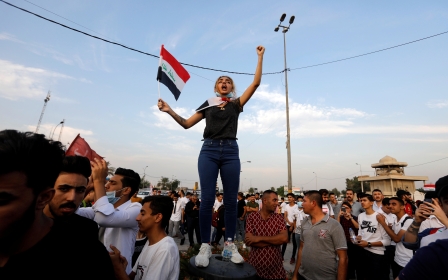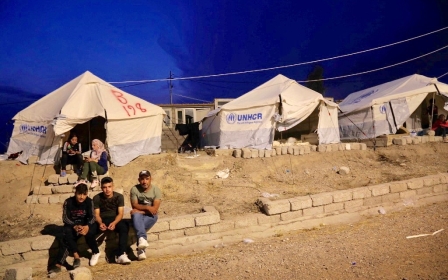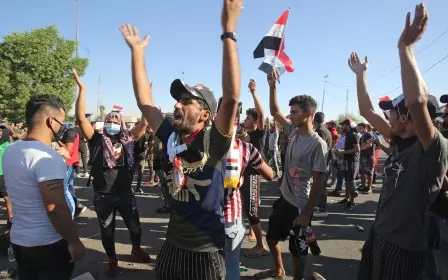Thousands defy curfew in Baghdad as anti-government protests continue
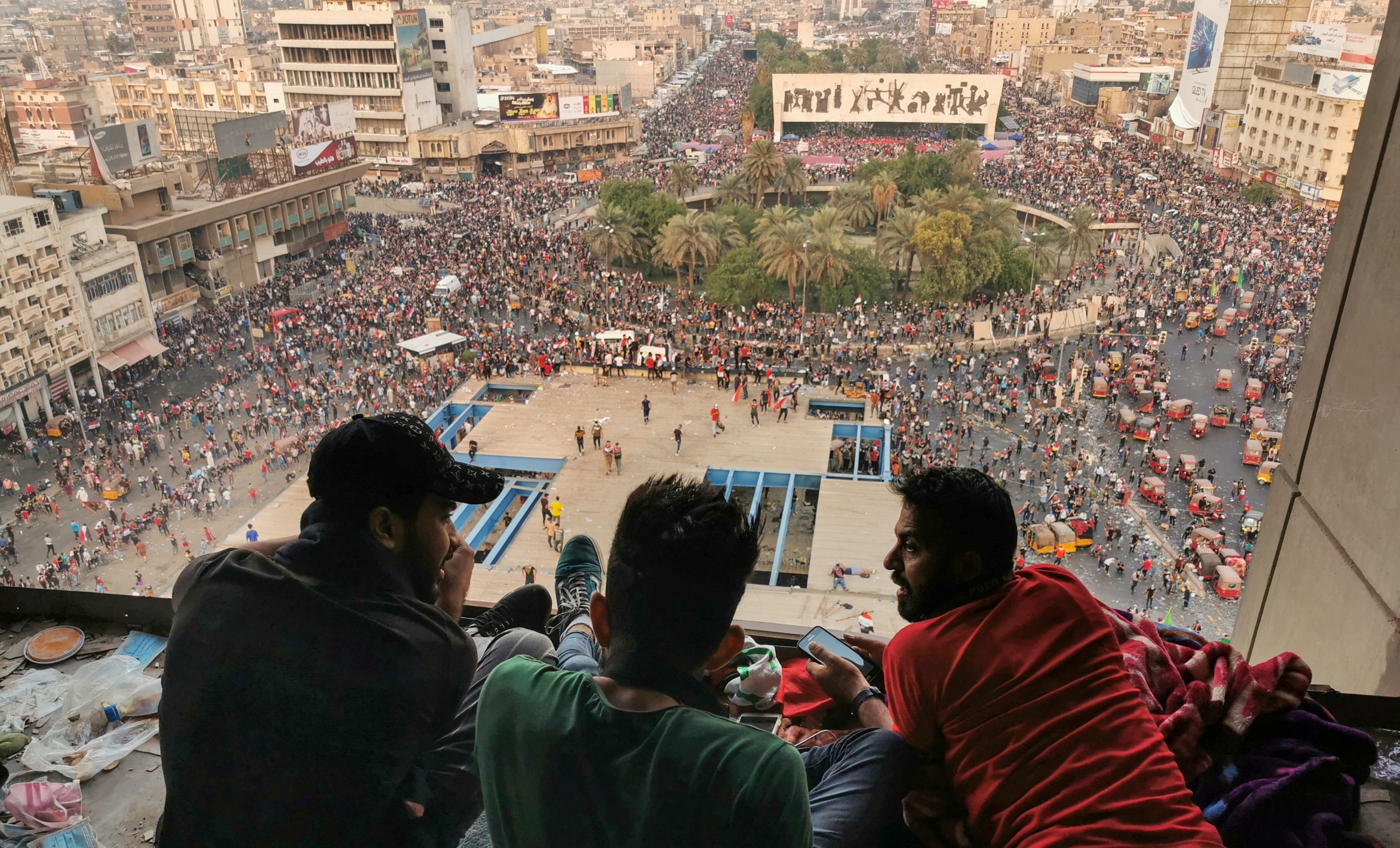
Thousands of people have continued to pour into the streets of central Baghdad, defying an army-imposed curfew meant to stem anti-government protests in the Iraqi capital.
As the curfew came into effect at midnight local time (2100 GMT) on Tuesday, people streamed into Tahrir Square on cars and on foot, AFP reported.
Drivers honked their horns as traffic accumulated in surrounding neighbourhoods, the news agency also said.
"No, we will stay. They have now declared a curfew and severe punishments for anyone not going to work, this is how they fight us. We will stay here until the last day, even if there are a thousand martyrs," one unnamed Iraqi protester told Reuters news agency.
The show of defiance came after Baghdad's top military commander said a curfew would be imposed from midnight (21.00 GMT) until 6am local time (03.00 GMT) effective "until further notice", Reuters reported, citing Iraqi state television.
New MEE newsletter: Jerusalem Dispatch
Sign up to get the latest insights and analysis on Israel-Palestine, alongside Turkey Unpacked and other MEE newsletters
'They have now declared a curfew and severe punishments for anyone not going to work, this is how they fight us. We will stay here until the last day'
- Iraqi protester in Baghdad
Iraqis have taken to the streets across the country for nearly a month in protest of unemployment, corruption and a lack of services.
Five protesters were killed in Baghdad on Monday, AFP reported, as the security forces attempted to break up the anti-government rallies.
Thousands of students and schoolchildren made up much of the protesters across southern Iraq, defying threats by the education minister and prime minister, who called for them to stay away from the protests.
"No school, no classes, until the regime collapses!" protesters shouted in Diwaniyah, 180km south of Baghdad.
The southern province's union of universities and schools announced a 10-day strike "until the regime falls", as many professors followed their students into the streets.
Footage released on social media appeared to show security forces beating female students in Baghdad.
More than 200 people have been killed in Iraq since the beginning of October, including more than 70 killed since last Thursday, while at least 8,000 others have been wounded.
Lawyers also joined the protests on Monday.
In a statement, the Iraqi Bar Association said its members would be on strike from 30 October until the demands of the protesters were met.
"[We] stand by the Iraqi people and support their demands to end the despicable quota system that led the country to this state of bad and serious deterioration, and to strengthen their claim to their national rights, and build a state of law and constitutional institutions and towards a better life for all Iraqis," the statement read.
The association said that, following an extraordinary meeting, it was calling upon all Iraqi lawyers "to refrain from pleading before all courts of all kinds and degrees, and in any legal capacity".
It added that teams would be "formed by lawyers for the purpose of defending peaceful demonstrators [who are] arrested and detained".
Early elections?
The news that a curfew would be imposed on the protesters sparked concern that the Iraqi security forces would attempt to clear out the gathering places that have hosted the rallies, such as Tahrir Square, which has been occupied by demonstrators for four consecutive nights.
Security forces in Baghdad have fired tear gas to keep protesters from storming the Green Zone, which hosts government offices and foreign offices.
But the protesters had otherwise been allowed to set up tents in the central square, and since Thursday, they also took over multi-storey buildings.
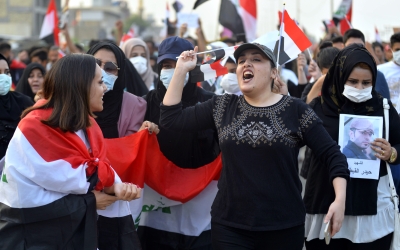
The demonstrations have also continued in other parts of the country, with young protesters gathering on Monday morning in the southern cities of Nasiriyah, Hillah and Basra.
In Kut, most government offices were shut due to a lack of staff.
The Iraqi parliament voted on Monday to end all bonuses and privileges typically doled out to the prime minister, the president, members of the cabinet, and parliamentarians in an attempt to quell the demonstrations.
However, the parliament did not actually amend the law that governs those perks, lawmakers later pointed out.
Shia cleric Moqtada al-Sadr on Monday called for early parliamentary elections, to be overseen by the United Nations, Reuters reported.
Sadr also said the country's existing political parties should not participate in that vote, the news agency said.
Middle East Eye delivers independent and unrivalled coverage and analysis of the Middle East, North Africa and beyond. To learn more about republishing this content and the associated fees, please fill out this form. More about MEE can be found here.


